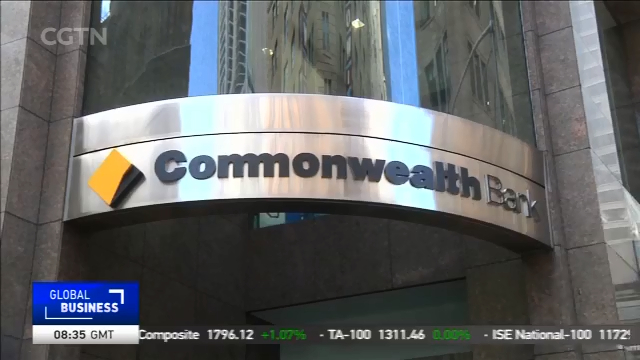
17:43, 07-Jun-2018
Australian Banking: Big banks involved in suspicious transactions
03:06

This is proving to be a tough week for Australia's major banks. So far, multi-million dollar fines and criminal charges have been levelled against some of the country's biggest and most profitable financial institutions. Greg Navarro explains.
On Monday, Australia's largest bank admitted it was late in reporting more than 53,000 suspicious cash transactions over a 3-year period. Authorities say those transactions were conducted by people linked to the international drug trade.
SCOTT MORRISON AUSTRALIAN TREASURER "I mean, what we are talking about here is anti-money laundering. What we are talking about here is, you know, breaches to systems that can actually put Australia's national security at risk."
Commonwealth Bank Australia said the breaches were not deliberate - and agreed to pay a record $700 million AUD fine - the largest in Australian corporate history. Authorities say that amount could have been much higher.
NICOLE ROSE, CEO AUSTRALIAN TRANSACTION REPORTS AND ANALYSIS CENTER "If you extrapolate the number of fines with the average fine allowed through the legislation, it gets up to a trillion dollars."
Two days later, ANZ was one of 3 financial institutions formally charged with criminal cartel offences following a 2-year investigation. The Australian Competition and Consumer Commission said that when ANZ issued shares to institutional investors, underwritten by Citibank and Deutsche Bank, the 3 allegedly sought to restrict the supply in order to keep the price higher.
LINDSAY DAVID, FOUNDER LF ECONOMICS "When three banks come together to try to do something that would at least appear to manipulate the value of a security being sold that is always going to open up the eyes of various people."
At least 6 bank executives also face criminal charges. While Australia's banks are among the most profitable in the world, they've also been under the spotlight. A Royal Commission is in the midst of investigating allegations of misconduct, which include questionable lending practices and financial advice.
LINDSAY DAVID, FOUNDER LF ECONOMICS "Whilst clearly the Royal Commission is only scratching the surface and not diving completely into the meat of the systemic misconduct in the banking system, it's pretty clear that the banks are going to have to start following the rules a bit more and when you follow the rules a bit more you are going to reduce the bank's profitability."
GREG NAVARRO SYDNEY "To put this into perspective - Australia's banks account for around 30% of the share market here, and some experts believe that reducing their profits will impact more than just the industry."
LF Economics founder Lindsay David says Australia's housing market is one example.
LINDSAY DAVID, FOUNDER LF ECONOMICS "Let's be a bit frank here, you've got a banking system that hasn't been lending to homebuyers within the laws and now the banks have to lend within the laws and that is being clearly reflected in the falling of house prices across especially Sydney and Melbourne."
Which is why David says he believes that too much of a shakeup to the banking industry - happening all at once - could ultimately threaten the stability of Australia's economy. Greg Navarro, CGTN, Sydney.

SITEMAP
Copyright © 2018 CGTN. Beijing ICP prepared NO.16065310-3
Copyright © 2018 CGTN. Beijing ICP prepared NO.16065310-3